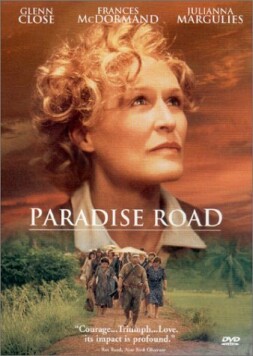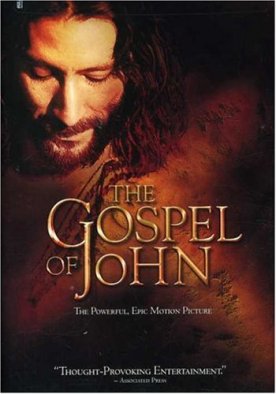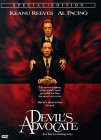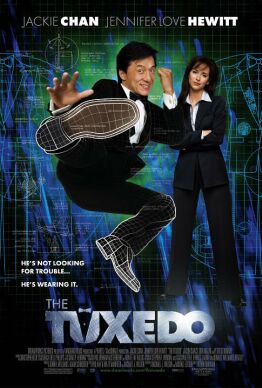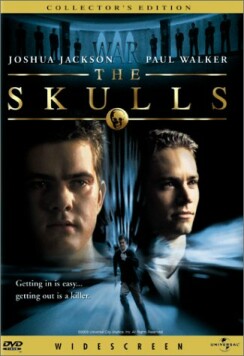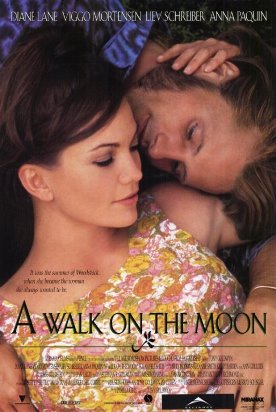Paradise Road
Bruce Beresford does so many things so well that he should by rights be one
of the best directors of our time. But there is a certain coarseness to his
sensibility, a weakness for the sentimental cliché, which often comes
near to vitiating even his best work. His latest film, Paradise Road,
though I don’t think it deserves the
drubbing it has taken from some critics, is an excellent example of what I mean.
This true story (or based on truth—which ought to go without saying) of a
group of British, Australian, Dutch and American women interned by the Japanese
in unspeakable conditions in Sumatra during the Second World War has some
interesting characters and certain of its scenes are terrifically well done.The
Japanese air attack on the ship evacuating the women and children from Singapore
in February, 1942, is a beautifully managed scene. Beresford also manages to
strike just the right balance between barbarism and humanity in representing the
women’s Japanese captors.
There is also an excellent leading performance from Glen Close as Adrienne
Pargiter, the British tea planter’s
wife who leads the other women in an impromptu
“vocal
orchestra” which hums in concerted
harmonies such symphonic favorites as the largo from
Dvorak’s New World Symphony and
Ravel’s Bolero. Frances McDormand as
the German-Jewish Dr Verstak strikes me as a disappointment. But it is not just
her fake sounding accent. The part is not well written. To a lesser extent the
same is true with those of such good to splendid actresses as Pauline Collins,
who plays the saintly (evangelical) missionary, Daisy
( “Margaret” )
Drummond and Joanna Ter Stegge as a Dutch nun, Cate Blanchett as Susan McCarthy,
an Australian nurse and Jennifer Ehle as the glowing bride, Rosemary
Leighton-Jones.
Too little is made of these characters, and even less of the
“neutral”
Irishwoman or the anti-imperial American (Julianna Margulies) both of whom have
seemingly been pencilled in for major parts but who remain very shadowy figures
indeed. Even the promise of an anti-imperial theme fizzles out. The American is
heard to say, on the night they are evacuated from Singapore,
“It’s
a nice night for the collapse of an
empire.” Amazingly, nobody hits her.
Later, when one of the Brits, trying to keep the hopes of the women up, says
that “The British
don’t
lose” their wars, this woman says:
“If I had paid attention in school, I
reckon I could think of a few.” But
that’s about it for American-British
tensions. British-Dutch ones are even more summarily dealt with. A quarrel over
an Englishwoman’s charge that the
Dutch stole her soap in the shower is resolved when Ms Drummond finds the
diminutive bar in the grass.
Even where the characters are more fully developed, as in the case of the
ever wonderful Elizabeth Spriggs as the hoity-toity patrician Mrs. Roberts, they
somehow manage not to be very interesting. Even in the orchestra, she is
worried about “what kind of
people” will be in it with her. But
her kind of class-conscious insensitivity is a familiar caricature—and
what happens to her is too. She learns by being thrown together with her social
inferiors lessons in good old Aussie egalitarianism. Even Adrienne Pargiter has
to learn the same lesson, though in her case it is self taught. She says to
Missionary Drummond: “I feel I owe you
an apology,” Adrienne says to her.
“What
for?”
“For my
snobbery,” says Adrienne.
“We never associated with missionaries
in Singapore.”
Likewise, there is rapproachment between English and Dutch as Rosemary
Leighton-Jones adopts a young Dutch woman to whom she teaches English. This
rings especially false, as the Dutch all speak English like natives from the
time they are children and are very unlikely to be talking in these comic
foreign accents as adults. Likewise, too, there are a number of feminist touches
which are straight out of the back of the cliché drawer: Adrienne, though
a graduate of the Royal College of Music, had given up her music when she got
married. Susan McCarthy, too, the Australian nurse is a feminist exemplum.
Although she expects to return to her
father’s sheep station after the war
(Daddy had been upset enough about her being a nurse), she is spotted by Dr.
Verstak as a potential doctor herself.
“You do what you want, not what your
father wants” the Doctor tells
Susan.
But perhaps the most crass moment comes with the music. I suppose we have to
allow the New World as a well-recognized soother of savage breasts, but it is
going a bit far to have the brutal Japs on the point of bludgeoning our gals
into insensibility until the moment when they hear the first notes. Suddenly
they lay down their rifles, sit down and listen in rapt attention. Sorry, I
don’t buy it. Maybe they liked it.
Maybe they let them off because they liked it, but it
didn’t happen like this. And what on
earth could Beresford have been thinking when he chose as the only other
selection from the women’s repertoire
performed during the film Ravel’s
awful
“Bolero” ?
Just the inevitable associations with that bit of 70s fluff, Blake
Edwards’s 10, should have ruled
out this disastrous lapse of taste. Better by far that Percy
Grainger’s
“Country
Gardens,” which plays over the closing
credits, should have found its way in here.
Discover more from James Bowman
Subscribe to get the latest posts to your email.

